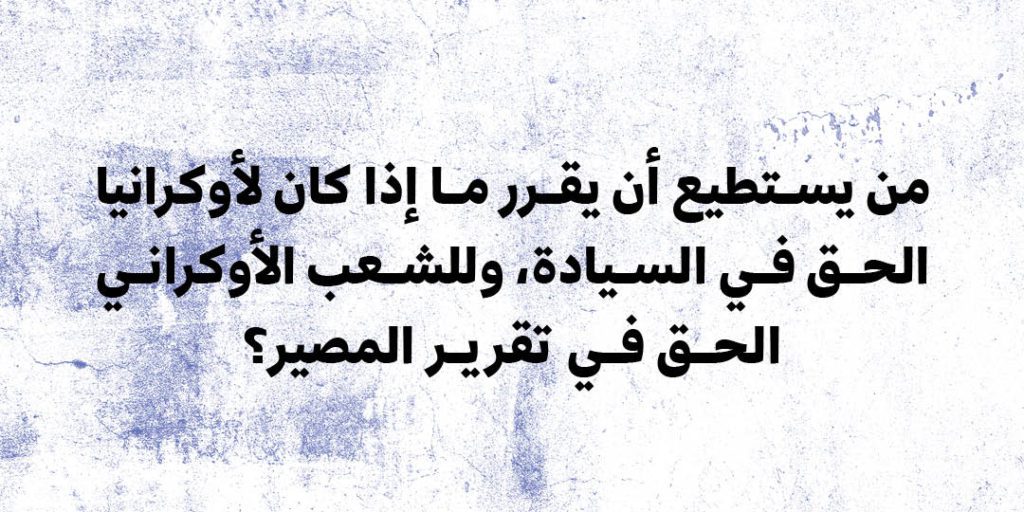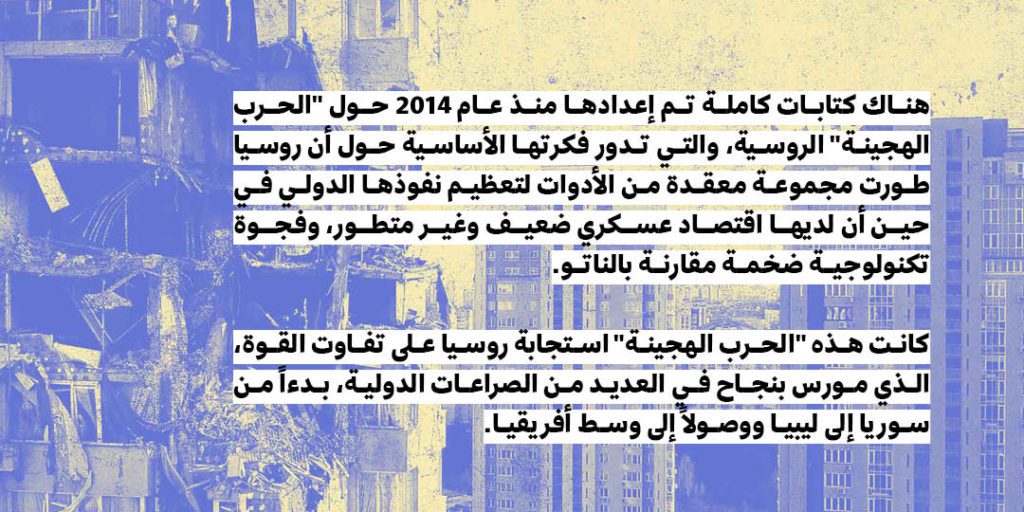The Russian invasion of Ukraine has gone awfully wrong.
The Russian leader Vladimir Putin has been wrong about Ukraine. He underestimated Ukrainian military capabilities, its preparations since Russia first invaded Ukraine, annexed Crimea and provoked a war in Donbas. He underestimated Ukrainian elites and their readiness to put aside their political, regional, and identity differences to work together against foreign invading armies. He was also unrealistic about the Russian-speaking Ukrainians and the nature of their support to Russia; the limits of such support among Russian-speaking Ukrainians evidently did not include being invaded, occupied and annexed by Russia.
The Russian leader has been wrong concerning Europe. Many European leaders tried to find a negotiated solution to the crisis, taking political positions different from that of the US and NATO. Russian decision makers might have interpreted this as European vulnerability, division and indecision. Simultaneously, the chaotic and humiliating American withdrawal from Afghanistan might have convinced the Kremlin about Western weakness and incapacity to react. Yet, the invasion by Russia of a sovereign European state forced Europe to regroup and impose harsh economic sanctions on Russia, and continually provide military assistance to Ukraine. For the first time since the end of the Cold War, the Russian invasion gave purpose to NATO.

Most of all, Putin was not realistic about his own forces, the capabilities of his own armies. Russian soldiers do not want to fight in Ukraine; the numerous cases where tanks and other military equipment are abandoned testifies to this. Russian military equipment evidently suffers from lack of maintenance, Russian logistics are overstretched, but the Ukrainian army proved itself more skilled in fighting a war with modern digital technologies and combined arms. The Russian military is unable to fight this war: the initial aim of occupying Kyiv in a few days turned into a fiasco: invading forces did not manage to bring the Ukrainian capital under siege. Over a month after the invasion, the Russian forces still did not manage to impose air superiority, while Ukrainian military planes, helicopters and drones continue their operations, and Ukrainian air defences continue to resist against Russian aerial attacks.
How can we explain that Vladimir Putin and Russian decision makers could have been so wrong? Compare this with Vladimir Putin elsewhere with his shrewd tactical understanding of conflicts and balance of forces elsewhere, cynically manipulating various contradictory interests to maximise his own power. Within strategic studies, there is an entire literature developed since 2014 about Russian “hybrid warfare”, the central idea of which was that Russia developed a complex set of tools to maximise its international influence while having a weak military, under-developed economy, and a huge technological gap compared to NATO. This “hybrid warfare” was Russia’s response to the power asymmetry, successfully exercised in several international conflicts, from Syria to Libya and Central Africa.
One explanation often given is that because of the long Covid period Putin has lost touch with reality. The Russian president, who has more power than any other leader since Joseph Stalin, has been ruling during most of the pandemic in isolation, often from his palace in Sochi. The most visible expression of this isolation out of fear from Covid was the long tables that separated Putin from his subordinates or foreign dignitaries. Yet, this explanation is not enough. See how Putin managed the war in the Caucasus in 2020, when Azerbaijan launched an attack on Mountainous Karabakh. Putin followed a policy of balancing act, letting Azerbaijan attack Armenian forces during the 44 days of war, only to intervene and expand Russian influence in the South Caucasus.


The best source to look for an explanation is Vladimir Putin himself. On July 12, 2021, the Russian president published an article with the title “On the Historical Unity of Russians and Ukrainian”, where he lays out historical arguments about the unity of Eastern Slavic peoples (Russians, Ukrainians and Belarusians). The article laid the ideological foundations for Russia’s invasion of Ukraine, as it argued that Ukrainian people did not have their proper identity, and therefore the Ukrainian nation did not have a right to sovereignty as an independent nation. Putin, like so many other autocrats, used pseudohistory, which is not his field of specialisation, to advance political claims of ideological nature.
And who decides whether Ukraine has the right to sovereignty, and Ukrainian people the right to self-determination?
It was the autocratic Putin himself, in power for over two decades now, in the name of the higher interest of the Russian state, and a self-ascribed historic mission.
When it comes to Ukraine, Putin revealed another dimension of his own character, someone emotional, irrational, and highly ideological. By declaring the war aims to be to disarm and to “de-Nazify” Ukraine, the Russian leader set impossible aims, making the Russian war in Ukraine unwinnable.
Read Also:
No posts






